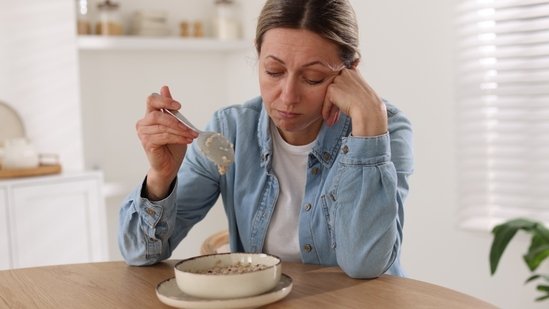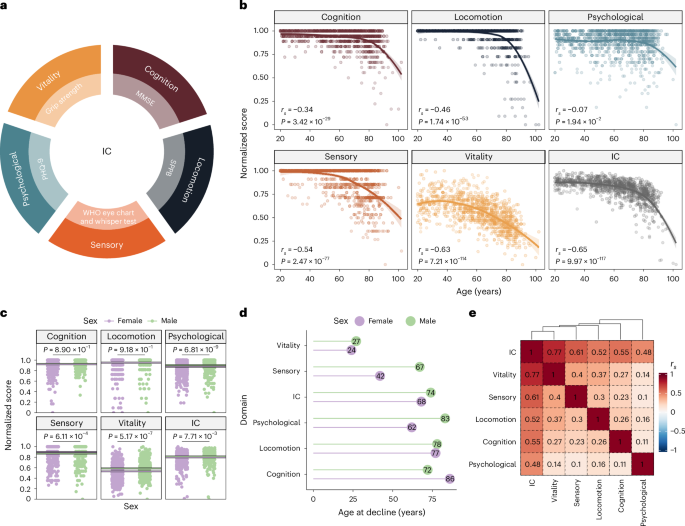Losing weight is never as simple as it sounds. The first advice we often hear is, “Cut your calories.” But here’s something surprising: cutting your calorie intake might actually take a toll on your mental health. A new study has revealed that low-calorie diets may increase the risk of depression—especially among men and people who are overweight. Yes, you read that right. The ‘first step’ of dieting could be messing with your mood.
Counting calories isn’t just a tedious task—it may actually put your mental health at risk. According to a new study published in BMJ Nutrition, Prevention & Health on June 3, people who follow calorie-restrictive diets are more likely to experience symptoms of depression compared to those who aren’t dieting at all.

Researchers found that people on low-calorie diets scored significantly higher on depression symptom scales. This association was even stronger among overweight people and biological men.
“Calorie-restricted diets were associated with higher depressive symptom scores, which contrasts with the findings of earlier controlled studies,” said lead researcher Dr. Venkat Bhat, associate professor of psychiatry at the University of Toronto. “Additionally, biological men and overweight people appear more vulnerable to the negative effects of restrictive eating.”
So why does this happen? The researchers believe that drastically cutting calories might deprive the brain of essential nutrients—like glucose and healthy fats—that are vital for balanced mood and cognitive function. The brain needs a steady supply of energy to function properly, and when that’s disrupted, it can lead to irritability, fatigue, and depressive symptoms.
The study analysed health data from over 28,500 adults who participated in the US National Health and Nutrition Examination Survey between 2007 and 2018. Participants were asked about their diets and completed a questionnaire that assessed depressive symptoms.
Of the total participants, nearly 8 per cent showed signs of depression. While 87 per cent were not following any specific diet, about 8 per cent reported being on low-calorie diets, 3 per cent followed diets that restricted specific nutrients (like carbs or fats), and 2 per cent followed a medical dietary plan (such as those for diabetes or heart conditions).
The findings showed that those on calorie-restrictive diets had higher depression scores than those who were not dieting. People who were overweight or on any form of restrictive diet—whether it is limited calories or certain nutrients—had the highest depression scores. The study also found that even being on any kind of diet affected men’s mood more negatively than women’s.
This is in sharp contrast to previous clinical trials which suggested that low-calorie diets might actually improve mood and reduce depressive symptoms. So, what’s the difference?
The researchers explained that earlier studies were typically controlled trials where participants followed well-planned, balanced diets under supervision. In contrast, real-life dieting is often unsupervised, restrictive, and nutritionally inadequate—which can worsen mental health rather than improve it.
“Diets low in carbohydrates (glucose) or fats (omega-3s) may theoretically worsen brain function and increase cognitive-affective symptoms, especially in men with greater nutritional needs,” the study authors wrote. They also pointed out that the frustration of not losing weight—or gaining it back after dieting—can further harm mental well-being.
Dr. Sumantra Ray, executive director of the NNEdPro Global Institute for Food, Nutrition and Health in the UK, who reviewed the findings, said the study “adds to the emerging evidence linking dietary patterns and mental health.” He emphasised the role of nutrients such as omega-3 fatty acids and vitamin B12 in maintaining emotional balance.
However, Dr. Ray also noted that while the study reveals important trends, the effects observed were relatively small. “Further well-designed studies that accurately capture dietary intake and minimise the impact of chance and confounding are needed,” he said in a statement.
If you’re trying to lose weight, cutting calories may seem like the go-to strategy—but it’s crucial to prioritise mental health and nutritional balance along the way. A healthier approach may involve focusing on what you eat, not just how much. The best approach is to consult a nutritionist or a dietician before starting any restrictive diet.








